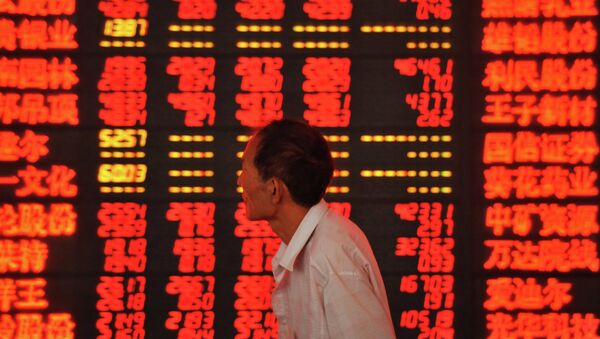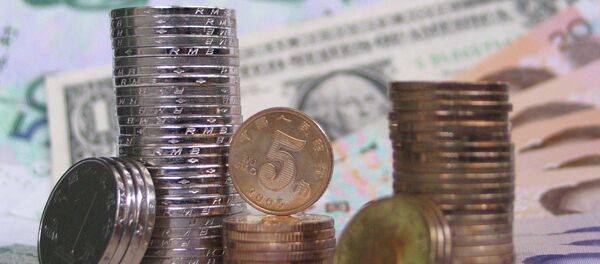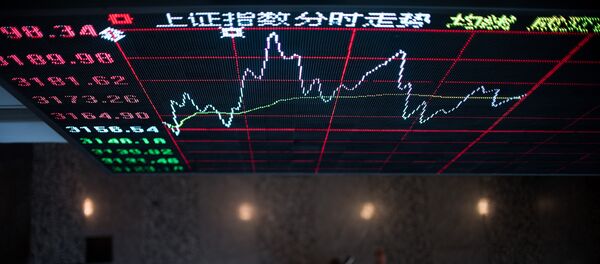Kristian Rouz — Mainland China's financial markets watchdog loosened its grip on securities trading as the nation's stock markets stabilized amidst increased economic confidence. Tighter brokerages regulations had been implemented during this summer's stock meltdown in Shanghai and Shenzhen, with brokerages having been obliged to buy more stock than they were selling in an attempt to slow the Chinese assets' depreciation. Now, as mainland China's finance have become healthier in the wake of economic rapprochement with the US and Britain, supported by the IMF's benevolent stance on the renminbi inclusion into the Fund's reserve currencies basket, Beijing is demonstrating its willingness to liberalize its finance.
Still, the Chinese authorities are pressuring market participants with corruption probes into two of China's largest equity trading companies. Four insurance company executives have been suspended as Beijing is pushing though with their effort to curb malicious market practices. Mainland China has vowed to eradicate corruption in its financial sector, boasting traditionally strong ties with top Communist Party officials, as the nation is heading for a full integration into the existing global financial system.
CSRC notified brokerages on Tuesday they are now allowed to sell stock. The decision might potentially trigger massive selloffs in the riskiest assets, but with investment confidence improving, this is an unlikely consequence.
"In some ways it's a positive factor — it shows that the CSRC has concluded that the market has basically returned to normal," Du Changchun of the Shanghai-based Northeast Securities said. "I'm not too worried about big selling under current conditions."
Even though the CSRC decision might have stirred some market uncertainty of whether the brokerages would rush into opening selling positions or not, Tuesday's trading demonstrated the Chinese stock market is sustainable enough to return to normal trading practices. The CSI 300 Index of most prominent Shanghai and Shenzhen-traded stocks rose 0.2% at the close.
Even though some of Beijing's measures implemented this summer to curb stocks melting down were dubbed excessive and devastating to the nation's financial markets, they have efficiently put an end to multiple violations of trading rules, while at the same time helping the anti-corruption drive.




